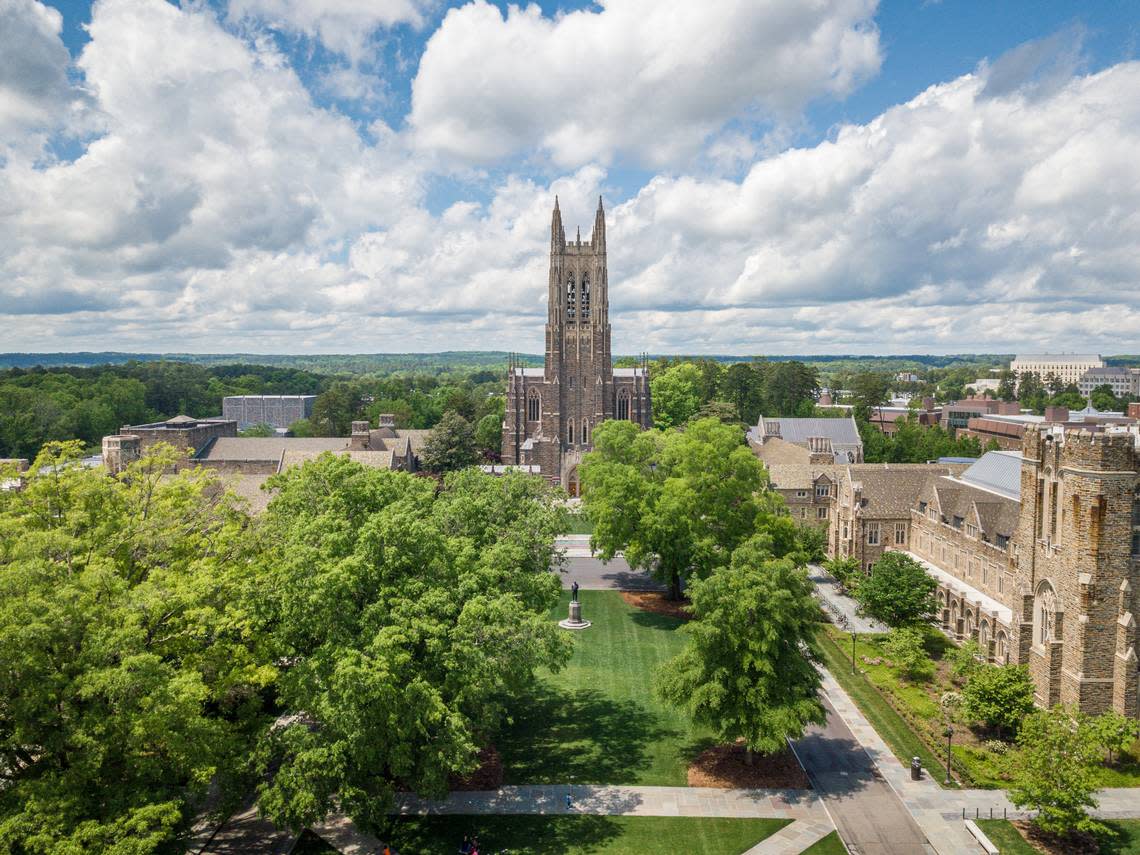Duke agrees to settle lawsuit alleging it favored wealthy students in admissions

Duke University has agreed to pay $24 million to settle its part of a sweeping lawsuit accusing more than 15 elite, private colleges of violating federal antitrust regulations related to student financial aid.
The federal lawsuit, filed two years ago, alleged that Duke and the other universities named in the suit — including Brown University, Yale University and Columbia University, among others — engaged in a price-fixing cartel that reduced the amount of financial aid offered to students and artificially inflated the price of attending the universities, The News & Observer previously reported.
The suit claimed the universities collaborated through the “568 Presidents Group,” named for the section of the Higher Education Act that exempted some colleges from antitrust laws when they collaborated on their financial aid formulas, to create a shared set of standards across the colleges to determine a family’s ability to pay for their student’s education.
Such practices were allowed, provided the schools admitted students on a need-blind basis, meaning a student’s financial need was not considered as part of the decision to admit them. But the lawsuit alleged the schools did take those needs into account and weighed students’ ability to pay for their education in the admissions process, The N&O reported.
The suit alleged that, as a result of those practices, the universities provided less financial aid to students than they would have “had there been full and fair competition.” The schools allegedly overcharged 170,000 students who were eligible for financial aid by “at least hundreds of millions of dollars” over two decades, the suit claimed.
Duke was specifically accused of “maintaining admissions systems that favor the children of wealthy past or potential future donors,” The N&O reported.
Duke did not provide a comment on the settlement to The N&O in time for publication. Frank Tramble, the university’s vice president for communications, said in a statement to the Duke Chronicle Wednesday that the university denied wrongdoing and was settling “to avoid the wasteful cost and inconvenience of prolonged litigation.”
Along with Duke, Brown, Yale, Columbia and Emory University also settled their parts of the lawsuit Tuesday. Collectively, those schools agreed to pay more than $104 million to settle their respective parts of the case. The University of Chicago previously paid $13.5 million to settle its portion, and Rice University had agreed to pay more than $34 million, The New York Times reported.
If the settlements are approved in court, Duke undergraduate students who were enrolled full-time at the university beginning in the fall 2003 semester through the approval date may be eligible for a share of the settlement. The students must have received at least some amount of financial aid from Duke and had some amount of tuition, fees, room or board that was not fully covered by the university.
Claimants who meet the criteria and submit valid claim forms on-time could receive average payouts of $750, depending on how many people submit claims and other factors.
More information about the suit and eligibility for potential payouts is available at financialaidantitrustsettlement.com.

